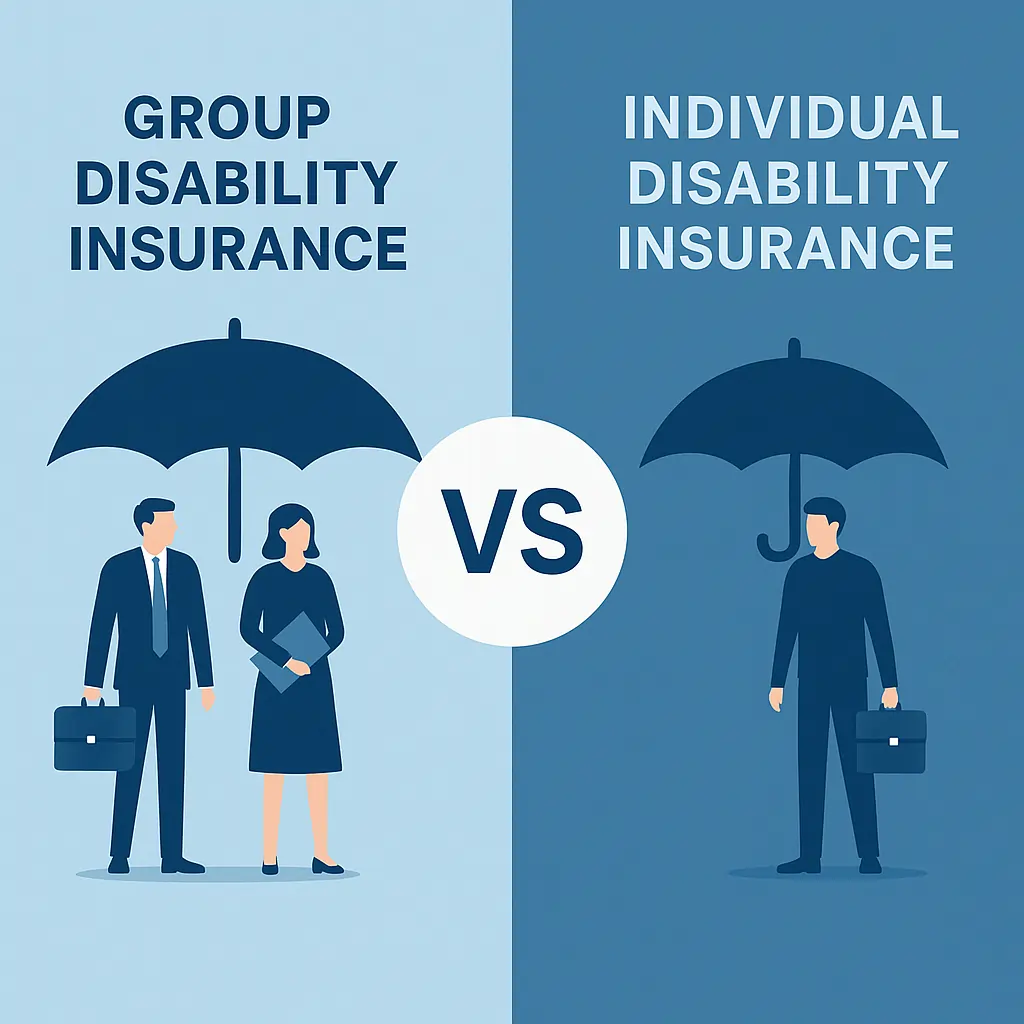
Story at-a-glance
- Disability insurance isn’t “set it and forget it.” Your life and income change—your policy should keep up.
- Riders can expire without notice. If you miss a deadline, you could lose the right to increase coverage without new medical underwriting.
- Life events = time to review. Graduating, changing specialties, income boosts, or going private are all key review moments.
- Better health might mean lower premiums. If you’ve lost weight or quit smoking, you may qualify for savings.
- Private practice brings new risks. You may need coverage for business partners, key employees, or a group policy for your staff.
My employer offers me disability insurance via a group plan. Why do I need my own policy?
It’s terrific that your employer offers this important benefit to you. But there are important differences between a group disability plan designed to appeal to employers and an individual plan, designed and customized for your personal needs as a physician. Owning an individual policy has many advantages over relying solely on an employer’s plan for disability insurance – particularly when it comes to physicians, who have some unique concerns about disability insurance coverage that are different from the general population. When people fully understand these advantages, most of them want to own their own policy, in addition to their employer’s group disability plan.
Employer Risk
Your employer can change or cancel your group disability policy at any time. There may be a change in ownership, or they may just want to tighten their belt in the case of a business downturn. Physicians are in demand and are not likely to be unemployed for very long. But that doesn’t mean you won’t face layoffs. Many entire hospitals have shut their doors nationwide over the last decade, and all employees lost their benefits.
You may be in good health now, but your health circumstances could change between now and the time you lose your group disability coverage. If you get sick or injured between now and then, you may not be able to purchase disability insurance coverage at any price.
Portability
Eventually, you may want to hang up being a W-2 employee working for someone else and open your own practice. In the long run, this is usually a much more lucrative career option – especially for those with some business acumen. But when you leave an employer, your employer’s group coverage generally doesn’t leave with you. You will need to buy your own individual coverage if you want your income protected when you leave your employer for private practice – or even for a better situation with an employer that doesn’t offer disability insurance!
If you get sick or hurt before you are ready to strike out on your own, again, you may not be able to get disability insurance on your own at any price. You may even be forced to give up your dreams of private practice and remain on your employer’s plan, though you’re unhappy there. For example, if you happen to be diagnosed with multiple sclerosis or ALS, but you’re still able to work, you may have to stay put in the expectation of having to file a claim later.
Definition of Disability
In the disability insurance world, the specific terms of the policy matter a great deal – particularly the specific language the policy uses to define “disability.” What, precisely, qualifies as a sufficiently severe disability to trigger the payment of benefits under your policy?
There are two broad definitions insurers use: “any occupation” and “own occupation.” With an “any occupation” policy, you can be severely disabled, but as long as you are able to continue working in any occupation, you will not qualify for benefits. You can even be forced to leave your cherished profession as a physician or dentist, give up years of seniority and pension benefits and substantial potential for income growth in future years, and still not qualify for benefits. Your income is simply not protected against the risk of having to leave your profession as a doctor.
But too often, employers seeking to minimize premium costs go with the lowest insurance bidder, who offers any occupation coverage. And why not? The employer doesn’t lose the extra protection afforded by an own occupation policy – you do!
This is why we recommend doctors own an “own occupation” policy. These policies will pay benefits if your illness or injury disables you and forces you to leave your own occupation. It will pay benefits under a much wider array of circumstances, and is more likely than an any occupation policy to actually pay out a claim. Some policies are available that will even pay benefits if you have to leave your own current specialty within medicine.
This alone is a powerful reason to own your own individual coverage.
Taxation
If your employer pays the premiums, any income you receive from a disability insurance policy is taxable to you as ordinary income. As a physician, you may be in a very high tax bracket – especially later in your career.
If you own your own policy, you generally cannot deduct the cost of disability insurance premiums, but any benefits paid out to you are federally tax-free.
Ready to protect your future?
Get a personalized side-by-side policy comparison of the leading disability insurance companies from an independent insurance broker.




